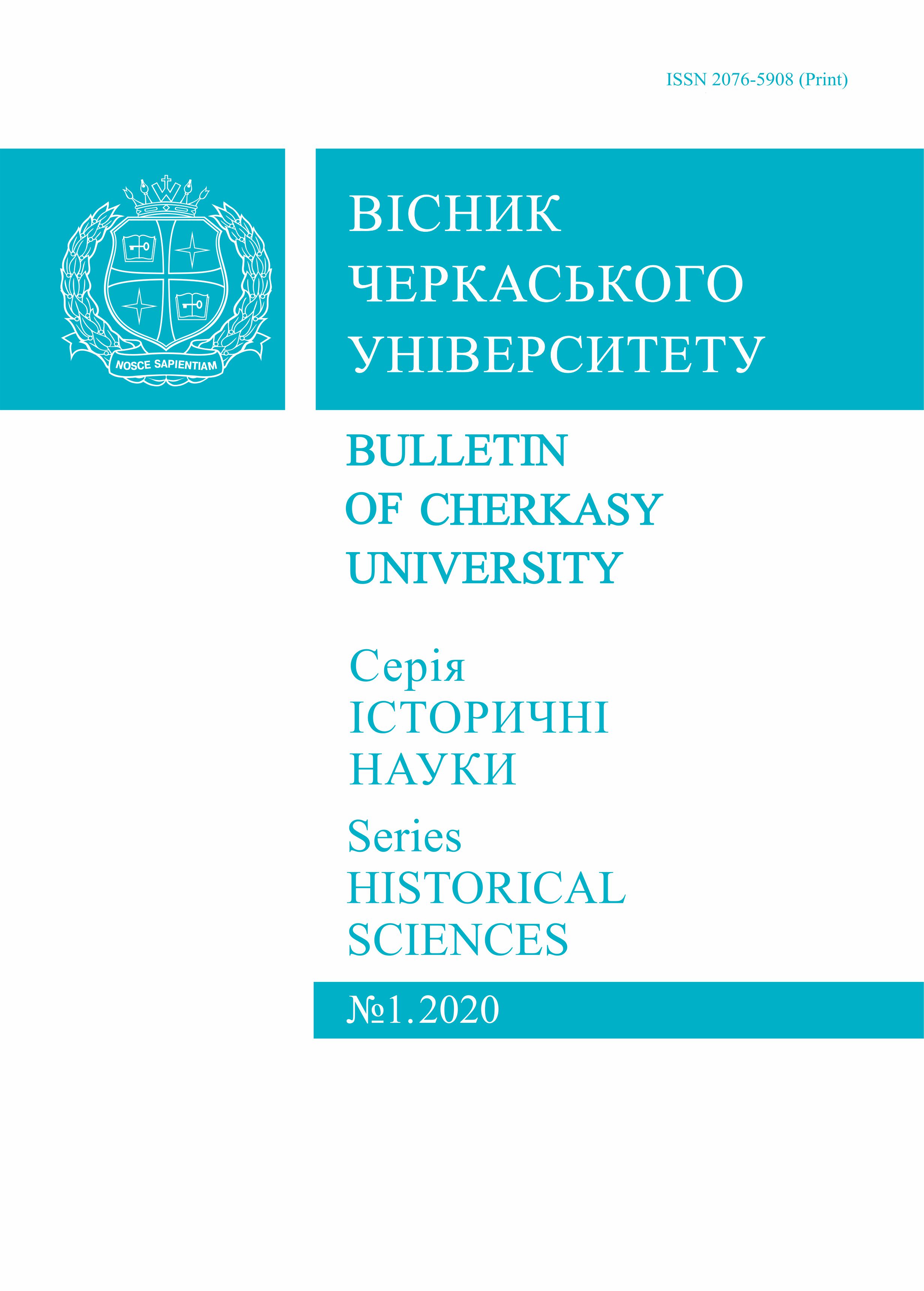Temporal mode of modern, postmodern and metamodern: narrative-discursive aspect
Main Article Content
Abstract
Abstract. Introduction. The article is devoted to the study of the peculiarities of correlation between the temporal regimes of modern, postmodern and metamodern and their representations in historical narratives and discourse. The terminological phrase of the temporal mode in the context of the category of temporality in humanities in general and the verbal forms of its expression in discourse in particular are considered. The urgency of the article. The relevance of the article is due to the formation of the newest paradigm of the historical narrative and discourse in the modern information culture. The aim of the study. The purpose of the article is to comparatively examine the interpretation of the functioning of historical narratives and discourse in the modern, post- and metamodern paradigms, as well as to clarify the intentionality of this process. Methods used in the study: textual analysis of sources, historical and philosophical analysis, analytical and hermeneutical methods in combination with contemporary history of ideas and culturological approach.
The results of the study are due to the following considerations. Narrative and discourse in the context of the topic of research are interpreted not only as forms of representation and translation of historical knowledge and ideas, but also as markers of the meaning-generative potential of the philosopheme of history within the picture of the human world and its living world (lebenswelt). A distinction is drawn between the concepts of the philosophy of history and historiosophy in accordance with the concept of the temporal mode and its formalization in historical narratives and discourse. In accordance with the theme, the forms of transformation of the temporal mode within the paradigms of modern, postmodern and modern goals are analyzed. The mediating and dynamic nature of the metamodern, aimed at the paradoxical reconciliation of the modern and the postmodern with respect to their relation to grand narratives and historical knowledge and metaphysical grounds of historical discourse, are outlined. The concepts of meta irony and metaxis, oscillations in the context of historical narratives and discourse are considered. The originality and novelty of the study are the proposed interpretation of the correlation between the temporal, modern, postmodern and metamodern temporal regimes.
Conclusion. As a result of the study of the topic, we can determine the correlation between modern and postmodern temporal regimes within metamodern as oscillations. The oscillation between the production of the grandnarrative by the modern and the deconstruction of the discursive integrity of the postmodern based on meta-irony and metaxis as an epistemological and ontological strategy at the same time.The temporal mode of the metamodern, based on the latest information and communication technologies, new forms of reception and information management, causes the transformation of models of social collective and individual memory and imagination. Thus the changes of historical narratives and discourses are determined, the formation of the latest grand narrative requires rethinking the metaphysical bases of historical discourse, its forms of translation and modes of understanding.
Article Details
References
Kretov, P. V., & Kretova O. I. (2017). Symbolic Landscape of Consciousness : Man between Representationalism, Functionalism and Relativism. Anthropological measurements of philosophical research, 12, 40-49. URL: http://ampr.diit.edu.ua/article/view/119122.
Collingwood, R. G. (1996). The Idea of History. Kyiv: Osnovy. (in Ukr.)
Kovalchuk, I. V. (2010). The Alternative to Positivism – The History of R. G. Collingwood: Content, Meaning and Discussion. Praktychna filosofiia (Practical philosophy), 3, 201-208. (in Ukr.).
Chernyakov, A. G. (2001) Ontology of time. Being and time in the philosophy of Aristotle, Husserl, Heidegger. Sankt-Peterburg : Vy‘sshaya religiozno-filosofskaya shkola. (in Rus.).
Kozellek, R. (2006). Time layers. History theory research. Kyiv : Dukh i litera. (in Ukr.).
Schulz-Forberg, H. (2013). The Spatial and Temporal Layers of Global History: A Reflection on Global Conceptual History through Expanding Reinhart Koselleck’s “Zeitschichten” into Global Spaces. Historical Social Research / Historische Sozialforschung, vol. 38, no 3 (145), Space/Time Practices and the Production of Space and Time, 40 – 58.
Assman, A. (2017). Has the connection of times broken up? The rise and fall of the modern temporal regime. Moskva : Novoe literaturnoe obozrenie. (in Rus.).
Habermas, J. (2001). Philosophical Discourse of Modern. Kyiv : Chetverta khvylia. (in Ukr.).
Encyclopedia of Postmodernism. Ed. C. Winkwist and W. Taylor (2003). Kyiv Vydavnytstvo Solomii Pavlychko «Osnovy». (in Ukr.).
Dember, G. (2018, 17 Apr.). After Postmodernism: Eleven Metamodern Methods in the Arts. WiM on Med. URL: https://medium.com/what-is-metamodern/after-postmodernism-eleven-metamodern-methods-in-the-arts-767f7b646cae
Manifest of metamodernism. (2011). URL: http://www.metamodernism.org/
Vermeulen, T., & van den Akker, R. (2010, 2 November). Notes on Metamodernism. ResearchGeit. URL: https://www.researchgate.net/publication/233894749_Notes_on_Metamodernism
Turner, L. (2015, 13 January). Metamodernism : A Brief Introduction. Notes on metamodernism. URL: http://www.metamodernism.com/2015/01/12/metamodernism-a-brief-introduction/
Ironesty. (2017). URL: http://www.icoinedthewordironesty.com/
Metamoderna. URL: https://metamoderna.org/
Van den Akker, & R., Gibbons, A., & Vermeulen, T. (2017). Metamodernism : Historicity, Affect, and Depth after Postmodernism (Radical Cultural Studies). Lanham, Maryland: Rowman & Littlefield Publishers.
Vermeulen, T., & van den Akker, R. (2010). Notes on metamodernism. Journal of Aesthetics&Culture, 2, 1-14. URL: http://www.emerymartin.net/FE503/Week10/Notes%20on%20Metamodernism.pdf

